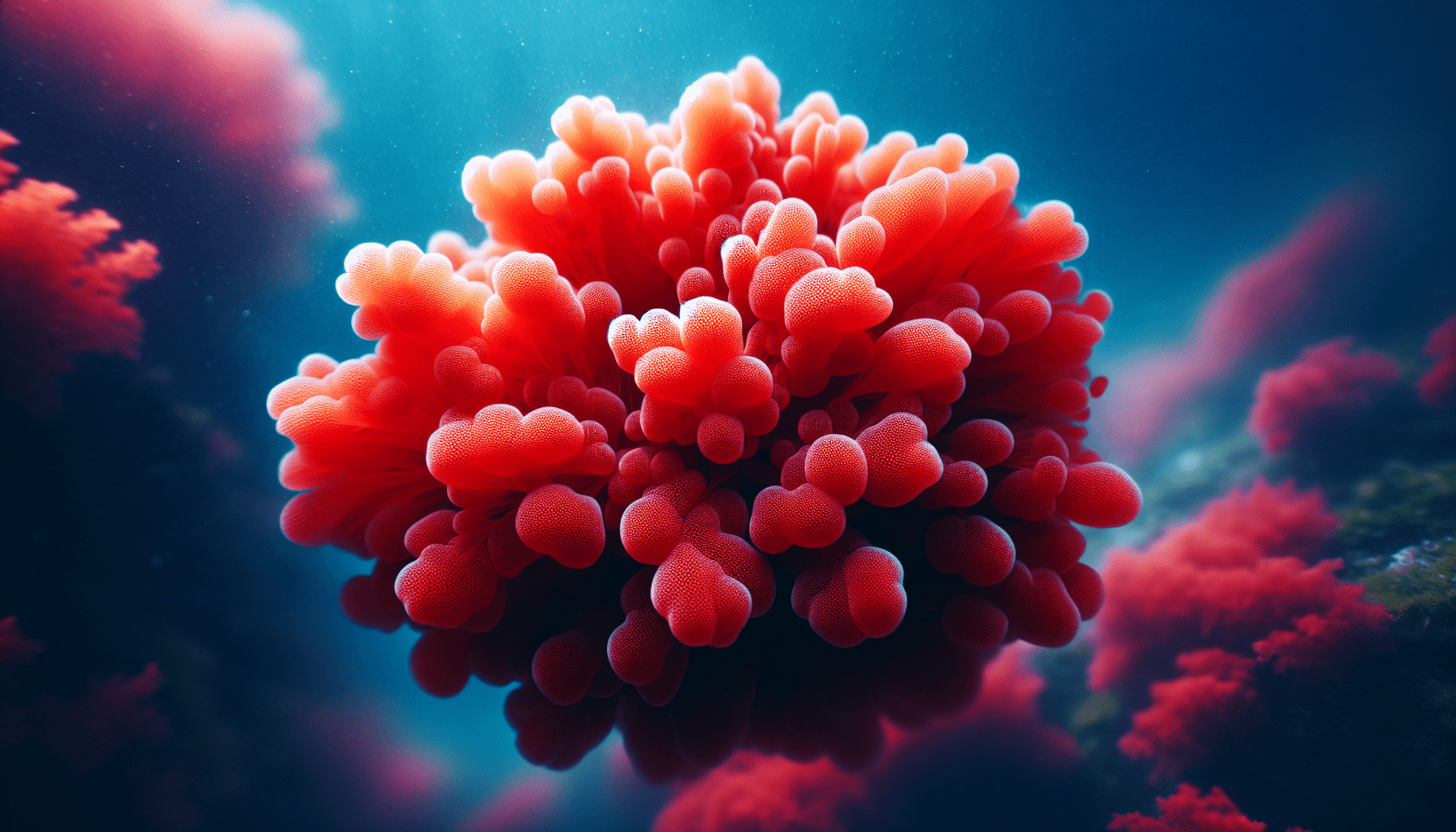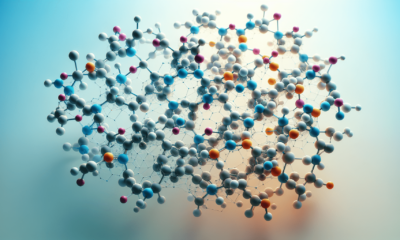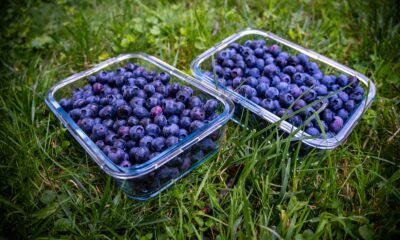Health and Wellness
Astaxanthin’s Role in Enhancing Longevity
Discover how astaxanthin, a potent antioxidant, can enhance longevity. Explore recent studies and learn about its molecular mechanisms and health benefits.
Have you ever wondered what factors contribute significantly to extending your life? While lifestyle and genetics play undeniable roles, emerging research suggests that certain natural compounds can also make a sizable difference. One such compound is astaxanthin, a potent antioxidant. This article explores the ways in which astaxanthin can enhance longevity, examining recent scientific studies and delving into the molecular mechanisms involved.

Understanding Longevity: A Balance Between Lifestyle and Genetics
Before diving into the role of astaxanthin, it’s important to understand the broader context of longevity. Longevity is influenced by various factors, including lifestyle choices such as diet, exercise, and stress management, as well as genetic predispositions. Your lifestyle can either potentiate or inhibit the genetic blueprint you’re born with. However, even with the best lifestyle choices, the role of external compounds, like antioxidants, is crucial in tipping the balance toward a longer, healthier life.
The Power of Antioxidants
Antioxidants are molecules that fight oxidative stress by neutralizing free radicals, which can damage cells and contribute to chronic diseases and aging. There’s a variety of antioxidants found both in natural and synthetic forms, but their efficacy can differ widely. Astaxanthin is one such antioxidant that has garnered significant attention lately. Its potential in preventing and treating chronic diseases positions it as a noteworthy candidate in enhancing longevity.
What is Astaxanthin?
Astaxanthin is a reddish pigment belonging to the carotenoid class of antioxidants. It’s naturally found in certain algae and yeast, as well as in marine life such as salmon, shrimp, and lobster. Unlike some antioxidants, astaxanthin never converts to a pro-oxidant, even under high oxidative stress levels, making it uniquely stable and effective.
Research Findings: Astaxanthin’s Superior Antioxidant Activity
Recent studies have shown that astaxanthin sourced naturally exhibits far greater antioxidant activity compared to its synthetic or genetically engineered counterparts. According to research, naturally-sourced astaxanthin demonstrated 14 to 90 times greater antioxidant activity than the synthetic version. This is pivotal because the efficacy of an antioxidant is directly linked to its ability to provide health benefits.
Sources of Natural Astaxanthin
Natural astaxanthin can be found in a few primary sources:
- Microalgae: Specifically, Haematococcus pluvialis is a rich source.
- Yeast: Xanthophyllomyces dendrorhous is another natural source.
- Fish: Certain fish like salmon and trout contain microorganisms that produce astaxanthin.
Activation of the Longevity Gene: FOXO3
One of the most exciting findings regarding astaxanthin is its effect on the FOXO3 gene. The FOXO3 gene is often referred to as a “longevity gene” because of its role in cellular maintenance and repair mechanisms. It helps in producing genes that combat various signs of aging.
Experimental Study on Astaxanthin and FOXO3 Activation
Researchers conducted an experimental study where rodents were administered different doses of astaxanthin. Subsequently, the levels of FOXO3 gene expression in various tissues (heart, brain, blood, and skeletal muscles) were analyzed.
Findings:
- Heart Tissue: A 90% increase in the activation of the FOXO3 gene was observed in the heart tissue of rodents that were fed large amounts of astaxanthin.
- Blood: There was also a modest but significant activation of FOXO3 in the blood.
The research highlights astaxanthin’s potential to regulate genes that fight cellular aging, thus emphasizing its role in enhancing longevity.

How Astaxanthin Affects Lifespan
Mechanisms of Action
The impressive impact of astaxanthin on lifespan can be broken down into several mechanisms:
- Reduction of Oxidative Stress: Astaxanthin neutralizes free radicals efficiently, thereby reducing oxidative stress, which is a significant contributor to cellular aging and chronic diseases.
- Improvement in Mitochondrial Function: Mitochondria are cellular powerhouses that often get damaged over time due to oxidative stress. Astaxanthin helps in maintaining mitochondrial function, thereby prolonging cellular life.
- Anti-Inflammatory Effects: Chronic inflammation is often a precursor to various age-related diseases such as arthritis, Alzheimer’s, and cardiovascular diseases. Astaxanthin has notable anti-inflammatory properties that can mitigate this risk.
- Gene Regulation: As mentioned, astaxanthin activates the FOXO3 gene, which influences many other genes involved in stress resistance, metabolism, and apoptosis (programmed cell death).
Comparing Natural and Synthetic Astaxanthin
To gain a clearer perspective, let’s compare the natural and synthetic forms of astaxanthin in a more detailed manner.
| Attribute | Natural Astaxanthin | Synthetic Astaxanthin |
|---|---|---|
| Antioxidant Activity | 14-90 times greater | Lower |
| Sources | Microalgae, yeast, fish | Lab-engineered |
| Bioavailability | Higher | Lower |
| Cost | Generally higher | Lower |
| Environmental Impact | Sustainable when sourced | Possible synthetic production waste |
| Stability under Stress | Stable | Less stable |
Natural astaxanthin consistently outperforms its synthetic counterpart, making it the preferred choice for enhancing longevity.
Practical Applications
Dietary Sources
If you’re considering adding astaxanthin to your diet, consuming foods rich in this antioxidant is a great start. Salmon and other seafood are excellent sources. However, for those who may not consume fish regularly, supplements derived from microalgae are highly effective.
Supplements
When opting for supplements, ensure that you choose ones derived from natural sources to get the maximum benefit. Dosage recommendations vary, but generally, 4-12 mg per day is considered safe and effective for adults.
Astaxanthin in Everyday Life
Incorporating astaxanthin into your daily routine doesn’t have to be complicated. Here are some tips to easily include this powerful antioxidant in your lifestyle:
- Add Seafood to Your Diet: Incorporate salmon or shrimp into your meals a couple of times a week.
- Choose the Right Supplements: Opt for high-quality, naturally-sourced astaxanthin supplements.
- Pair with a Healthy Lifestyle: The benefits of astaxanthin are maximized when combined with a balanced diet, regular exercise, and stress reduction techniques such as meditation or yoga.
Conclusion
The comprehensive research on astaxanthin highlights its significant role in enhancing longevity through various mechanisms, including its potent antioxidant activity and its ability to activate the longevity gene, FOXO3. Whether through diet or supplementation, incorporating natural sources of astaxanthin into your lifestyle could be a powerful strategy in prolonging a healthy life. Remember, while you can’t change your genetic code, making informed lifestyle and dietary choices can significantly tip the scales in favor of a longer, healthier existence.
















